In automotive manufacturing and other advanced industries, the synergy between Original Equipment Manufacturers (OEMs) and their component suppliers plays a pivotal role in the seamless execution of production lines and the delivery of quality products.
Among these essential partnerships, the relationship between washer manufacturers and fastener component suppliers with OEM customers worldwide stands out as a cornerstone of industry success. This collaboration is not just about supplying parts; it’s about engaging in a continuous cycle of performance monitoring and collaborative improvement to meet the demanding standards of the automotive sector and beyond.
The Importance of Precision in Manufacturing
For OEMs in the automotive industry and other sectors like aerospace, defense, and medical, precision is not just a requirement—it’s the benchmark. The components they incorporate, down to the smallest washer, must meet exacting specifications for strength, durability, and reliability. This is where specialized washer manufacturers and fastener component suppliers come into the picture, providing customized solutions that cater to the specific needs of each industry.
Monitoring Performance: A Joint Effort
The dynamic partnership between OEMs and their suppliers is underpinned by a shared commitment to excellence. Washer manufacturers and fastener component suppliers do not merely deliver their products and step back. They engage in ongoing dialogue with their OEM customers, regularly monitoring the performance of their components in the field. This proactive approach allows for the timely identification of potential issues and the execution of improvements, ensuring that every part contributes positively to the overall performance and longevity of the end product.
The Role of Washer Manufacturers
Washer manufacturers play a crucial role in the OEM supply chain. They provide a wide range of washers, each designed to fulfill specific functions—from distributing load and preventing damage to components to ensuring tightness and preventing leakage in critical assemblies. The versatility of washers, combined with the expertise of specialized manufacturers, allows OEMs to achieve optimal assembly integrity and performance across various applications.
One of the key benefits of the close relationship between OEMs and their component suppliers is the ability to innovate collaboratively.
By working together to understand the unique challenges and requirements of each project, these partners can develop bespoke solutions that push the boundaries of what’s possible. Whether it’s creating a custom-designed washer to withstand extreme conditions or re-engineering a fastener for improved performance, this collaboration drives innovation that benefits the entire manufacturing ecosystem.
Risks of Choosing the Wrong Supplier: Washer Manufacturers
For Original Equipment Manufacturers (OEMs) operating in the advanced manufacturing sectors such as aerospace, defense, medical, and automotive, the selection of suppliers is a critical strategic decision.
The complexity and interconnectivity of modern supply chains mean that the choice of a supplier, particularly those involved in the provision of essential components like washers and fasteners, can significantly impact an OEM’s operations. When an OEM partners with a supplier that has limited supply chain capabilities, the repercussions can be far-reaching, potentially hindering operational efficiency, product quality, and market competitiveness.
Supply Chain Disruptions and Delivery Delays
A supplier with limited capabilities may struggle to scale production or adapt to changes in demand, leading to supply chain disruptions and delivery delays. For OEMs, timing is everything. A delay in receiving essential components like washers can halt production lines, leading to missed deadlines and strained relationships with end customers.
The ripple effect of such disruptions can tarnish an OEM’s reputation for reliability and punctuality, which are crucial in industries where timing and precision are paramount.
Here’s a wiki page on the supply chain collaboration topic.
Compromised Product Quality and Consistency
The expertise and technological capability of a supplier directly influence the quality and consistency of the components they provide. Suppliers with limited capabilities may not adhere to the stringent quality control standards required by OEMs in advanced manufacturing sectors. This can result in variations in component quality, leading to assembly issues, product failures, or recalls—all of which can have devastating effects on an OEM’s brand and financial health.
Partnering with the wrong supplier can also lead to increased costs and operational inefficiencies for OEMs. Inefficient production processes and poor quality control at the supplier level can result in higher rates of defective components, necessitating rework or replacement and driving up manufacturing costs. Furthermore, managing supplier-related issues can divert resources away from core operational activities, reducing overall efficiency and productivity.
Limited Innovation and Growth Potential
A supplier’s capability to innovate and evolve in response to changing market demands is critical for OEMs looking to maintain a competitive edge. Suppliers with limited supply chain capabilities may lack the resources or expertise to invest in research and development, constraining the OEM’s ability to innovate and respond to new opportunities. This limitation can stifle growth and prevent the OEM from expanding into new markets or developing new product lines.
Strategic Implications for OEMs
The consequences of selecting a supplier with limited supply chain capabilities underscore the importance of thorough due diligence and strategic supplier management for OEMs. By prioritizing suppliers who demonstrate robust production capabilities, stringent quality control measures, and a commitment to innovation, OEMs can mitigate risks and build a supply chain that supports operational excellence, product quality, and market responsiveness.
Conclusion
In the complex and competitive landscape of advanced manufacturing, the strength and resilience of an OEM’s supply chain are critical determinants of success. The selection of suppliers, especially those providing essential components, is a decision with far-reaching implications. Choosing the wrong washer manufacturers or suppliers can lead to operational disruptions, compromised product quality, increased costs, and limited growth potential. OEMs must therefore approach supplier selection with a strategic mindset, prioritizing partners who can not only meet immediate needs but also contribute to long-term goals and innovation.
The partnership between OEMs, washer manufacturers, and fastener component suppliers is emblematic of the collaborative spirit that defines the advanced manufacturing sector.
Our goal with our services at Fasco is to make our customers’ lives easier through cost cutting and reducing revenue loss, as well as eliminating wasted resources. Contact us to learn more.








